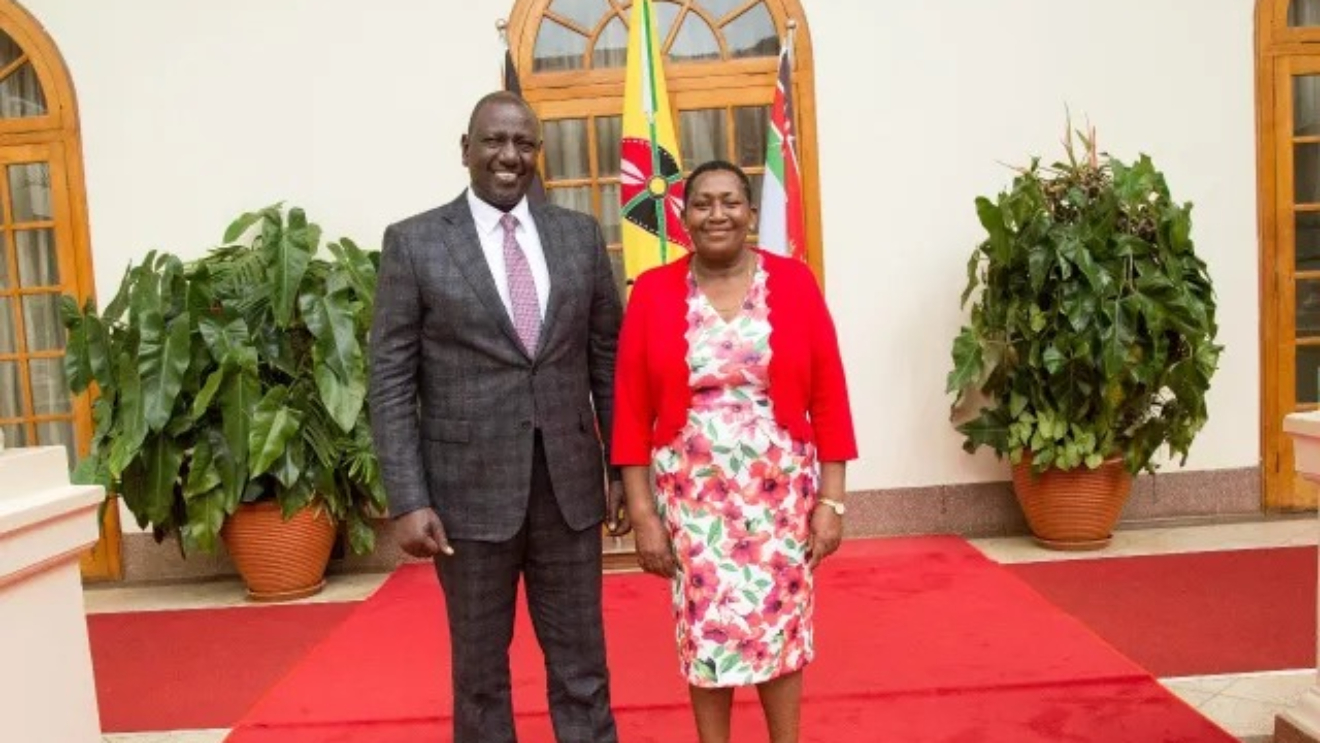In a recent development that has sparked controversy, Mary Wambui, a prominent ally of President William Ruto and Communications Authority of Kenya (CA) board chairperson, finds herself embroiled in the importation of edible oils scandal.
Wambui's company, Purma Holdings has been listed among the influential figures in the Kenya Kwanza government whose company was contracted to supply edible oil, giving rise to concerns and raising eyebrows across the nation.
The revelation came to light when Moses Kuria, the Trade and Industry Cabinet Secretary, presented a list of 11 firms in the Senate that were prequalified by the Kenya National Trading Corporation (KNTC) to import various commodities into the country.
Among these companies was Purma Holdings, which had been awarded a tender by KNTC to import a substantial quantity of rice, edible oil, and beans.
Wambui, who currently serves as the chairperson of the Communications Authority of Kenya (CA) Board, and her daughter, Purity Njoki Mungai, are reportedly the directors of Purma Holdings.
Read More
The close association between Wambui and President Ruto, with the former actively supporting the latter during the previous election, has added further intrigue to this unfolding situation.
Kuria, who appeared before the Senate to address various concerns, revealed that individuals associated with the Kenya Kwanza administration had secured the lucrative edible oil tender awarded by his ministry.
This revelation emerged during the Senate's weekly question time, a designated session for Cabinet Secretaries to respond to queries, following recent amendments to the Standing Orders.
The Kenya National Trading Corporation (KNTC) is currently responsible for the importation of four types of food products: fertilizers, rice, beans, and cooking oil.
Kuria emphasized that KNTC had procured commodities worth Sh22.2 billion as of April 30, with food items worth Sh4.8 billion already delivered.
"To address the rise in the cost of living, the Cabinet approved a framework to position the Kenya National Trading Corporation (KNTC) as the anchor of state initiatives to create a price stabilizer for essential household food items," explained Kuria.
"As such, KNTC, as a trading company, will supplement other state initiatives by creating Strategic Reserves for staple and essential food items, vital farm inputs including fertilizer, and any other goods necessary for ensuring stability in the prices of core goods consumed by Kenyans."
It is important to note that Kuria clarified that the procurement of commodities for normal business purposes does not fall under the definition of procurement as outlined in Section 2 of the Public Procurement and Disposals Act.
The inclusion of Mary Wambui's Purma Holdings in the list of firms contracted to supply edible oil has given rise to questions and concerns regarding potential conflicts of interest.
As the controversy deepens, the nation eagerly awaits further clarifications on the matter.
This development underscores the importance of transparency and accountability in public procurement processes, particularly when it involves influential figures within the government.
Kenyans hope that the relevant authorities will thoroughly investigate the matter and take appropriate action to ensure fairness and adherence to ethical standards.
As the story continues to unfold, it remains to be seen how this controversy will impact both Mary Wambui's position within the government and the larger political landscape in Kenya.











